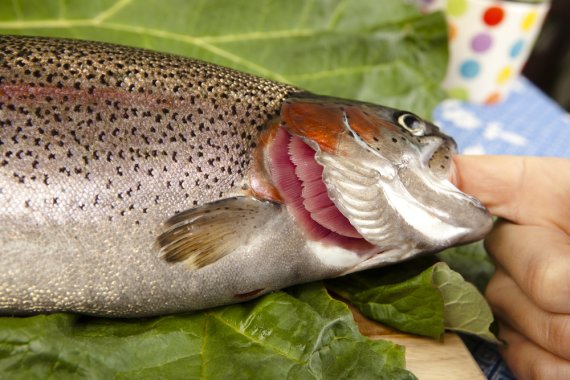‘Gills are possibly even more interest- ing than brains,’ says Geert Wiegertjes, Wageningen professor of Aquaculture and Fisheries. ‘Gills function as lungs, kidneys and an immune system. Brains cannot compete for complexity.’ In collaboration with international colleagues, he studied which tissues in the gills are crucial to the fish’s health and how these tissues have developed through evolution.
Gills are used by fish to extract not just oxygen but also minerals from the water. Fish inhale oxygen and exhale carbon dioxide and ammonia, all through the water. However, that same water also contains infectious microorganisms that threaten the fish’s health. How do they keep these at bay?
Zebrafish
Researchers discovered a few years back that lymphoid tissue in the gills plays a crucial role in the defence against microorganisms in the water, in much the same way as the lymph glands around our lungs help protect us against airborne pathogens. Recently, a new tissue structure was discovered in salmon — interbranchial lymphoid tissue (ILT) — that turns out also to play an important role.
In a new publication in Biology, Wiegertjes and his international col- leagues show how these ILTs have evolved over time, not just in salmon but in other types of bony fish as well. The study shows that both large carp and small zebrafish have this tissue structure, but evolution has led to major differences in the way these lymphoid structures are organized.
‘Brains cannot compete with gills for complexity’
Immunity
Wiegertjes now aims to find out whether fish, like humans, have an immune system comprised of the different mucous membranes throughout the body. In the case of fish, this mucous defence system could be located in both the intestines and the gills. The scientists hope this knowledge will allow the development of food additives that can fortify the fish’s natural immunity, making them more resistant to disease. The researchers are focusing not just on intensive salmon farming but also on the less intensive farming of tilapia, for example.

 Photo: Shutterstock
Photo: Shutterstock